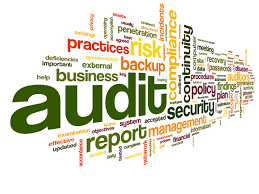![]()
Tax Audit Report for Freelancers
Tax Audit Report for Freelancers in India should adhere to several compliance measures to steer clear of tax audit issues. These steps help ensure accurate reporting and maintain transparency in their financial dealings.
There are following steps for Tax Audit Report for Freelancers:
1. Maintain Accurate Records:
Freelancers should meticulously maintain records of their income, expenses, invoices, and receipts.
This ensures they have a clear trail of their financial transactions, making it easier to substantiate their claims during an audit.
2. Regularly File GST Returns:
If the freelancer’s annual turnover exceeds the GST threshold, they must register for GST and file regular GST returns.
Timely and accurate filing helps avoid discrepancies and audit triggers related to indirect taxes.
3. Declare All Income Sources:
Freelancers should diligently report all sources of income, even if they’re not subject to TDS (Tax Deducted at Source).
Hiding income or failing to report it accurately can raise red flags during an audit.
4. File Advance Tax:
Freelancers should estimate their annual income and pay advance tax in installments to avoid last-minute tax burden and penalties.
Adhering to advance tax payments showcases financial responsibility and reduces audit risks.
5. Adhere to Section 44ADA:
Freelancers can avail the benefits of Section 44ADA, which offers a presumptive taxation scheme for certain professionals, including freelancers.
Following the prescribed rules under this section simplifies the taxation process and minimizes scrutiny.
6. Avoid Mismatch in GSTR-2A and GSTR-3B:
Freelancers registered under GST should ensure that their GSTR-2A (auto-populated purchase data) matches GSTR-3B (self-declared sales and purchases).
Mismatches could lead to GST scrutiny or audit.
7. Hire a Qualified CA:
Collaborating with a qualified Chartered Accountant (CA) can be immensely helpful in managing tax compliance.
CAs possess expertise in tax laws and can guide freelancers through proper documentation and filing procedures.
8. Respond Promptly to Notices:
If freelancers receive any communication or notice from the tax department, it’s crucial to respond promptly and accurately.
Ignoring or delaying responses can escalate minor issues into major audit concerns.
9. Keep Tabs on Due Dates:
Being aware of important due dates for tax filing, GST returns, advance tax payments, and other compliance requirements prevents late filings, penalties, and potential audits.
10. Maintain Separate Bank Account:
Having a dedicated bank account for business transactions separates personal and professional finances. It simplifies tracking income and expenses, promoting clarity during audits.
By adhering to these compliance measures, freelancers can significantly reduce the likelihood of tax audit issues and ensure a smooth and hassle-free taxation experience. Tax Audit Report for Freelancers
To visit: https://www.mca.gov.in/

For further details access our website: https://vibrantfinserv.com